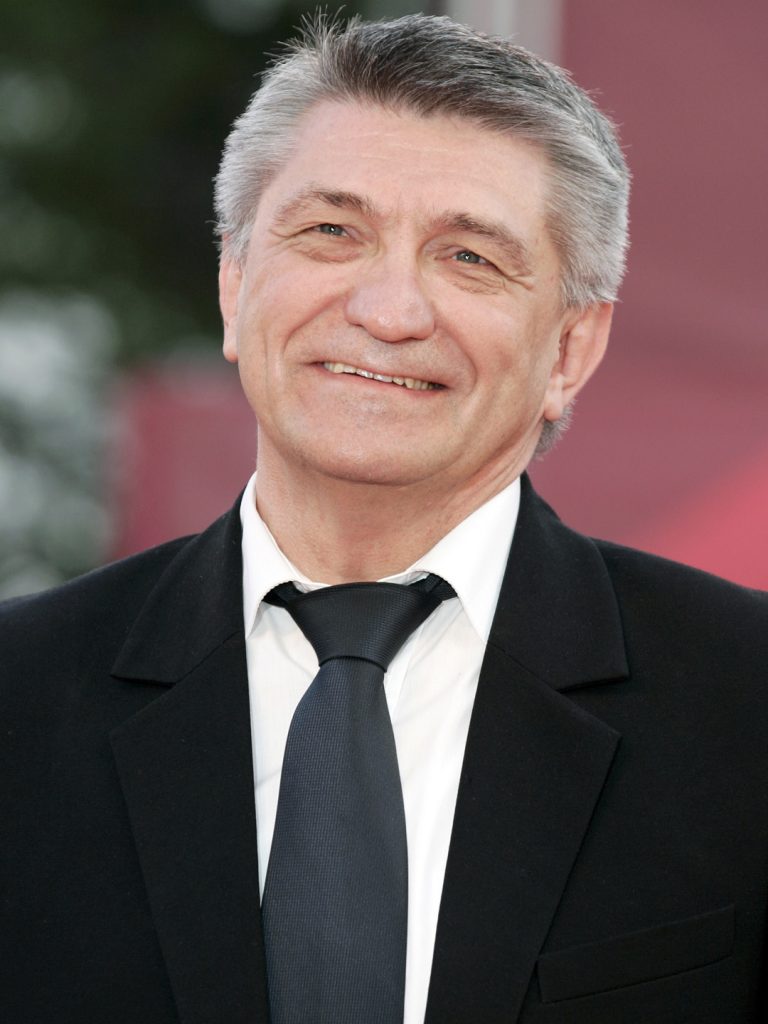
Alexander Sokurov
Birthdate: Jun 14, 1951
Birthplace: Podorvikha, Irkutskaya oblast, RSFSR, USSR [now Russia]
One of the most remarkable and distinctive Russian filmmakers of the past four-plus decades, Alexander Sokurov, has as unusual and culturally rich a body of work as exists in contemporary art cinema. Although most of his films are stubbornly ignored by many U.S. distributors and his style is so unique (and, some say, cryptic) that it resists imitation, Sokurov’s importance to the development of Russian cinema is undeniable, with a weight to his films that’s similar to the filmmaker who influenced him most, Andrei Tarkovsky.
Under Tarkovsky’s huge influence and mentorship, Sokurov began his career making short documentaries and TV documentaries, sometimes on cultural subjects, such as his film, Altovaya Sonata. Dmitri Shostakovich (1981). After four years, Sokurov filmed his first narrative feature, The Lonely Human Voice (filmed in 1978 but banned until glasnost in 1987), adapting two works by Russian author Andrei Platonov and winning the Bronze Leopard at the Locarno Film Festival. In 1983, Sokurov filmed Mournful Unconcern, based on George Bernard Shaw’s play, Heartbreak House 1983, but it was also banned by authorities, only to be released in 1987.
It was one of the earliest banned films to be released with the advent of the USSR’s perestroika policies. Sokurov’s third theatrical feature, Days of Eclipse (1988), was the first he filmed under the relatively freer atmosphere of perestroika. Once again, Sokurov turned to literature—in this case, Gustave Flaubert’s masterpiece, Madame Bovary—for Save and Protect (1989), his first film to play in the U.S. (in 1992). The director quickly followed with his family drama, The Second Circle (1990), which also arrived in the U.S. in 1992. Sokurov further explored Russian literature with the rarely-seen The Stone (1992), depicting an incident in the life of Anton Chekhov, and Whispering Pages (1994), a loose adaptation of Dostoevsky’s Crime and Punishment.
Alexander Sokurov’s international notoriety as a major filmmaker marked a turn with the acclaimed Mother and Son (1997), the first in a planned and still unfinished trilogy on intimate relationships based on Yuri Arabov’s screenplay. Sokurov followed with what several critics regard as a masterpiece, Moloch (1999), his extraordinary study of Hitler living in the Alps; when the film won the best screenplay Palme prize at Cannes, it technically went to Sokurov’s regular screenwriting partner Arabov and Marina Koreneva, not to Sokurov.
Moloch was the first in Sokurov’s second trilogy about major world leaders of the 20th century, followed by Taurus (2001), with Leonid Mozgovoy as Vladimir Lenin, the father of the Soviet Union and depicted during a long illness while Stalin is rising to power. Sokurov (as director and cinematographer) completed his trilogy about political power in the 20th century with the highly acclaimed The Sun (2005), about the last days of World War II as experienced by Japanese Emperor Hirohito, and the first Sokurov film not set in Russia.
Sokurov departed from this trilogy in 2002 with his most commercially successful and critically acclaimed film, Russian Ark (2002), his technically audacious single-shot “tour” through the halls of the Hermitage Museum in St. Petersburg as a metaphor for Russian history. He immediately followed with the second film in his relationship trilogy, Father and Son (2003), with Sergei Potepalov as a screenwriter and winning the FIPRESCI prize at Cannes.
Sokurov followed, as writer-director, with the expressive and beautiful wartime drama Alexandra (2007), featuring a moving lead performance by Galina Vishnevskaya, and the fifth Sokurov film in an eight-year period to compete in the main competition at Cannes. While Sokurov failed to win Cannes’ Palme d’Or, he won Venice’s Golden Lion in 2011 for his free adaptation of Faust, combining and radically altering elements of Goethe’s drama and Thomas Mann’s novel, Doctor Faustus, portrayed by Johannes Zeller. The project was explained as the fourth film in what had previously been a trilogy about power with Moloch, Taurus, and The Sun.
Sokurov made his first explicitly French and Western European film in 2015, Francofonia, starring Louis-Do de Lencquesaing, about Paris’ Louvre Museum during World War II; with it, Sokurov won his second prize in a row at Venice, the Mimmo Rotella Award. After his longest stretch of time without a new film, Sokurov completed his fourth film in a row as writer-director in 2022 with Fairytale, a Russian-Belgian co-production with Alexander Sagabashi, Tim Ettelt, and Lothar Deeg.
Alexander Sokurov Photos and Videos
Personal life
Alexander Sokurov was born and raised in the Siberian town of Podorvikha. His father was a military officer. Sokurov studied history at Nizhny Novgorod University and graduated in 1974.
After graduation, Sokurov studied filmmaking at the Gerasimov Institute of Cinematography (VGIK) starting in 1975. He became close friends with the nation’s leading film artist, Andrei Tarkovsky, and developed his cinema under Tarkovsky’s immense influence.
Facts About Alexander Sokurov
Opposition to Putin: After Alexander Sokurov spoke against Russia’s 2022 invasion of Ukraine, he was prevented from crossing the border with Finland to travel to Italy for a cultural event.
Vision Problems: Sokurov has experienced long-term vision issues since the late 1990s; when he conducts interviews, they must be done in darkened rooms.
Teacher: Since 2010, Alexander Sokurov has taught a renowned filmmaking course at Kabardino-Balkarian State University in the Caucasus region city of Nalchik, with several successful and acclaimed filmmaker alumni including Kantemir Balagov and Kira Kovalenko.
High Praise: Announcing that Sokurov’s Faustus was the winner of Venice’s best film prize, the Golden Lion, festival jury president, and filmmaker Darren Aronofsky explained that “there are some films that make you cry, there are some films that make you laugh, there are some films that change you forever after you see them, and this is one of them.”















